What is Iverheal 6mg ?
Iverheal 6mg is an antiparasitic drug that consisting of ivermectin. It can be used to treat various parasitic diseases, including scabies, lice infestations, intestinal strongyloidiasis, and onchocerciasis. It paralyses and kills parasites, giving instant relief for such conditions.
Key Features
| About Iverheal 6 mg |
|---|
| Drug Class: Antiparasitic Agents, specifically an ectoparasiticide and anthelmintic. |
| Subclass: Avermectins |
| Product Details | |
|---|---|
| Composition | Active ingredient: Ivermectin Inactive ingredients: • Silicon dioxide • Croscarmellose sodium • Magnesium stearate • Microcrystalline cellulose • Corn Starch |
| Packaging Type | Blister |
| Pack Size | 10×10 |
| Dosage | 12 mg |
| Therapeutic Class | Anti-helminthic |
| Action Class | Ectoparasiticides |
| Chemical Class | Avermectin derivative, specifically a semisynthetic anthelmintic agent |
| Manufacturer | Healing Pharma India Pvt Ltd |
| Shelf Life | 2–3 years from the date of manufacturing |
| Usages | Treats parasitic infections including Strongyloidiasis, Onchocerciasis, Scabies, Head Lice. |
| Country of Origin | India |
| Storage | Store below 30°C in a cool, dry place away from moisture and direct sunlight. |
How Does Iverheal 6mg Work?
- In invertebrate nerve and muscle cells, it binds to glutamate-gated chloride ion channels, increasing cell membrane permeability to chloride ions.
- Inducing the hyperpolarization of the nerve and muscle cell, leading to paralysis and death of parasite.
- Paralyzing parasites: The active component, Ivermectin, binds to certain receptors in the nervous system of the parasite and in muscle cells, resulting in an influx of chloride ions.
- Killing parasites: This increases permeability, hyperpolarizes nerve and muscle cells, and finally leads to paralysis and death of the parasite.
- Targeting GABA-mediated neurotransmission: Ivermectin is also an agonist of the neurotransmitter gamma-aminobutyric acid (GABA) and disrupts GABA-mediated central nervous system (CNS) neurosynaptic transmission in parasites.
This action mechanism makes this drug effective against a broad spectrum of parasites, such as:
- Nematodes (roundworms)
- Ectoparasites (mites, lice)
Targeting the nervous system and muscle cells of the parasite, Iverheal 3mg brings fast relief from parasitic infections.
Side Effects of Iverheal 6mg
- Gastrointestinal Symptoms: Diarrhea, nausea, vomiting, stomach upset
- Neurological Symptoms: Dizziness, drowsiness, shakiness
- Skin Reactions: Skin rash, pruritus
- Other Effects: Fatigue, loss of energy, loss of appetite
Usages of Iverheal 6mg
This medication is used to treat various Parasitic Infections like:
- Intestinal strongyloidiasis caused by the Strongyloides stercoralis parasite.
- Onchocerciasis caused by the Onchocerca volvulus worm, that leads to serious skin and eye lesions.
- Scabies caused by the Sarcoptes scabiei mite, that leads to itching and skin rashes.
- It is also effective against lice infestations.
Dosage of Iverheal 6mg
The dosage depends on the condition and weight of the patient. It is normally administered as a single dose once on an empty stomach with water, at least 1 hour prior to a meal.
Interaction
Ivermectin can interact with other drugs, which include:
- Blood thinners: This drug can increase the chances of bleeding when combined with blood thinners like warfarin.
- Certain antibiotics: It can interact with some antibiotics, like azithromycin or clarithromycin, which can enhance the likelihood of side effects.
- Anticonvulsants: Iverheal can interact with anticonvulsants, like valproic acid, which can influence the effectiveness and safety of both drugs.
Pharmacokinetics
This medication is slowly absorbed when taken orally, with plasma concentrations peaking at 4-5 hours. It is maximally metabolized in the liver and excreted mainly in the feces.
- It Slow absorption of Ivermectin following oral intake, with maximum plasma levels being attained in 4-5 hours.
- It is Highly distributed in the body, with a high volume of distribution. It is highly lipophilic and accumulates in fatty tissues.
- It is Metabolized by the cytochrome P450 enzymes in the liver, mainly CYP3A4.
- It is Mainly excreted in the feces, with minimal excretion in the urine.
Safety Concern
- Notify your healthcare provider: Notify your healthcare provider about all drugs you take, both prescription and over-the-counter drugs, vitamins, and herbal remedies.
- Watch for side effects: Watch for your side effects and report any severe or ongoing side effects to your healthcare provider.
- Dose adjustment: Your healthcare provider may have to change the dose of ivermectin or other drugs to avoid interactions.
Clinical Trials
This medicine has been thoroughly tested in clinical trials, showing its safety and effectiveness in the treatment of many parasitic infections, including:
- Strongyloidiasis: Ivermectin is found to be very effective for the treatment of strongyloidiasis, a parasitic infestation due to the Strongyloides, stercoralis worm.
- Scabies: Ivermectin has also been employed to cure scabies, a dermatitis caused by the Sarcoptes scabiei
Precautions
Prior to taking this medicine, consult your healthcare provider regarding:
- Please check prior Medical history: Some medical conditions, like liver disease or seizures, can influence the safety and effectiveness of ivermectin.
- Look whether the drug shows any interaction with other Medications: Ivermectin interacts with other medications, for example, blood thinners or some antibiotics.
- Is it safe to use in Pregnancy and lactation: Use of ivermectin during pregnancy and lactation is cautioned as its safety under these conditions is not clearly established.
Conclusion
Iverheal 6mg is a low dose antiparasitic medication for the treatment of numerous parasitic infections, including onchocerciasis, strongyloidiasis, scabies, and lice infestation. With awareness of the precautions and potential interactions, you can use this medicine effectively and safely. Seek individual advice and monitoring by your healthcare professional. With proper use, Iverheal 6mg can provide relief from parasitic infection and overall improvement in health with comparative less side-effects.
FAQs
1. For what purposes is Iverheal 6mg used?
Iverheal 6mg is employed to treat different parasitic infections such as intestinal strongyloidiasis, onchocerciasis, scabies, and lice infestation.
2. How does Iverheal 6 mg function?
Iverheal 6mg functions by paralyzing and eliminating parasites, allowing the body to naturally get rid of them.
3. Is Iverheal drug safe for all?
It is safe for all but can be used only after taking advice from your doctor.
4. Does Iverheal 6 mg interact with other medications?
It interacts with other drugs like blood thinners, benzodiazepines, and others.
5. What are the typical side effects of Iverheal 6mg?
Typical side effects include diarrhea, nausea, dizziness, itching, and rapid heart rate.
References
| iverheal-6mg | 30 Tablets $55, 50 Tablets $80, 100 Tablets $140, 300 Tablets $290, 500 Tablets $340, 1000 Tablets $770 |
|---|
1 review for Iverheal 6mg
It is highly recommended to consult a healthcare provider or doctor before using any of the above medications. This content is for educational purposes only. We advise you to read all the information mentioned by the manufacturer on the medicine before using it.



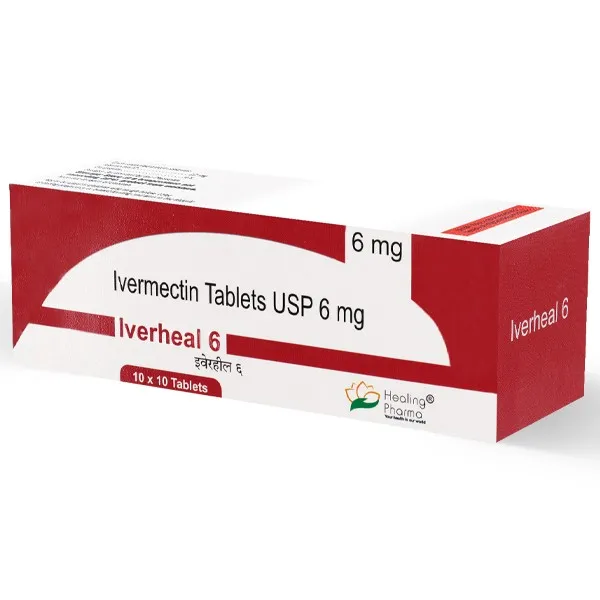
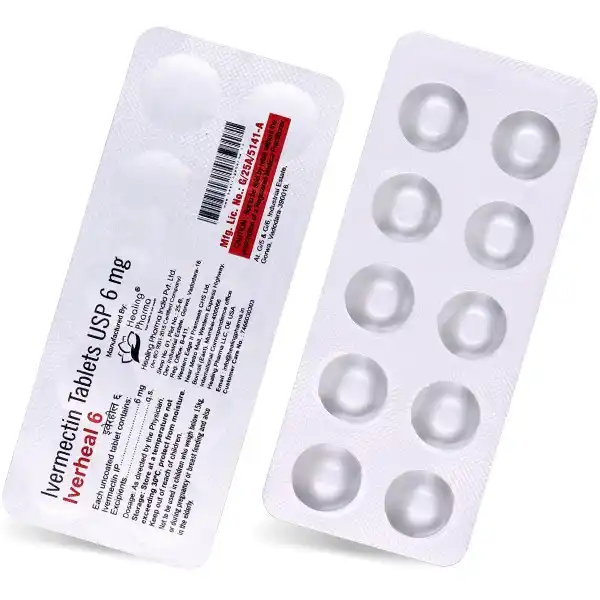

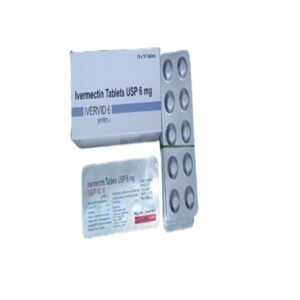
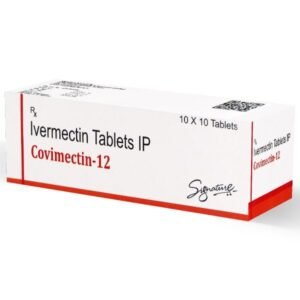
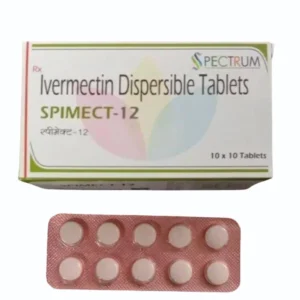
Bianca –
“I can’t thank you enough. After weeks of discomfort, this medicine finally gave me the relief I was looking for.”